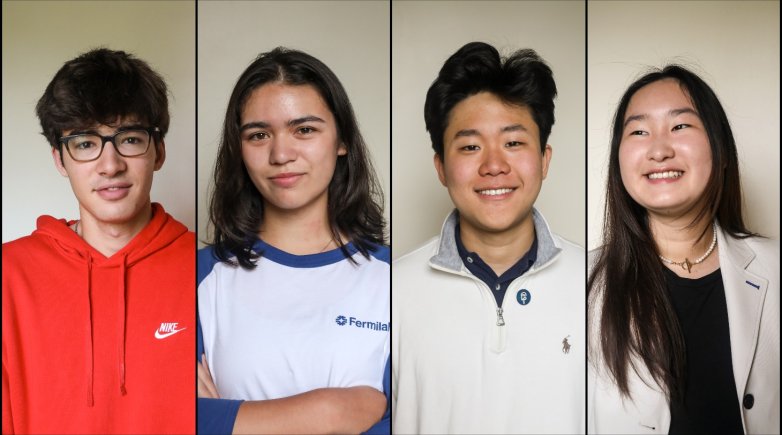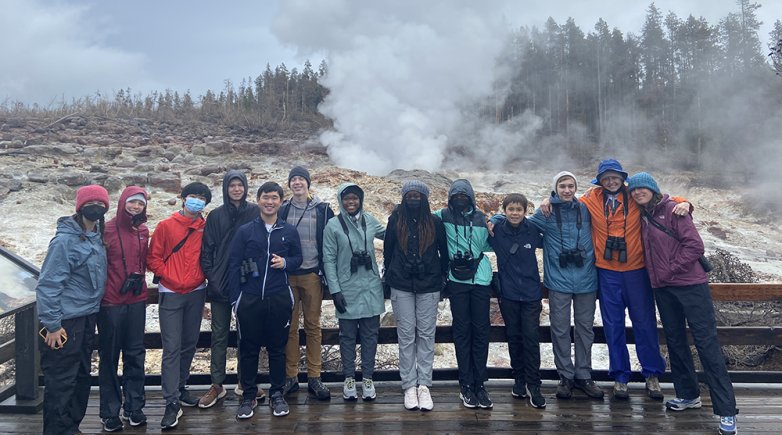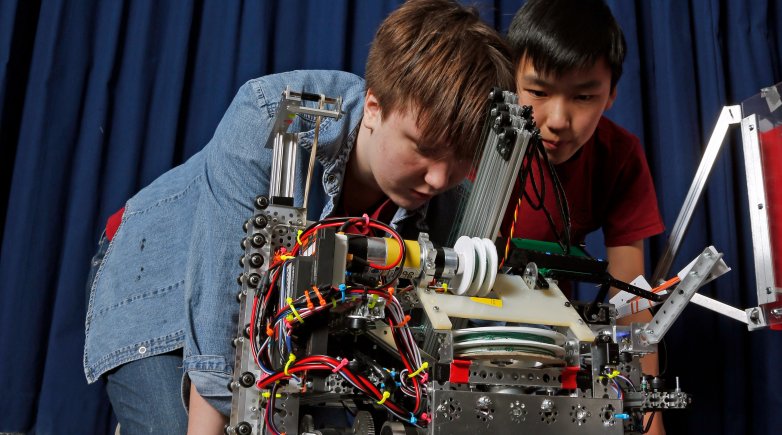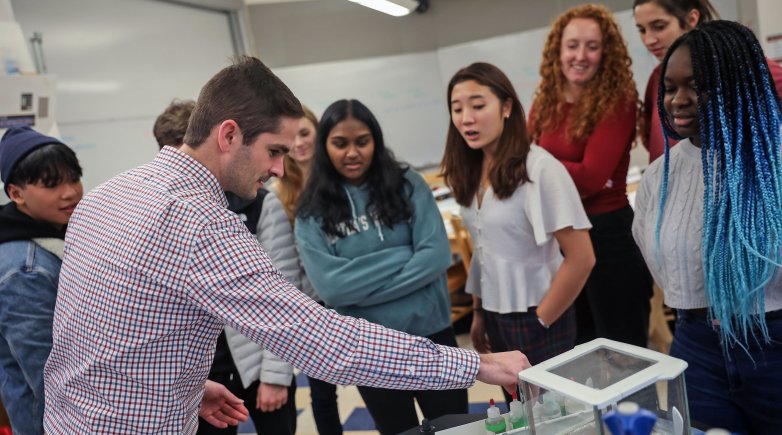The joys of persistent curiosity
Four Exonians pursue their passions over summer break.
Seniors James Clavel (from left), Isabella Vesely, David Kim and Minseo Kim spent their final summer breaks as Exeter students pursuing passions.
For many Exonians, the summer months offer that rare opportunity to follow their passions unhampered by school-year schedules and commitments. We caught up with four seniors as they settled on campus this fall and asked the time-honored question: How did you spend your summer?
James Clavel ’23
Baseball Statistician
Big Red ace James Clavel ’23 first played baseball in Japan, where he lived from age 8 to 12, so it was fitting that he returned there this summer as an intern with a professional team. Thanks to his Japanese maternal grandmother and family trips to Japan every summer until COVID hit, Clavel has stayed fluent in the language and interested in the culture. Through some local contacts, he secured an internship with the Fukuoka SoftBank Hawks, a member of Nippon Professional Baseball.
Clavel spent three weeks conducting statistical analyses for the team, which has won 11 championships. “They liked me because I understood both U.S. and Japanese baseball,” Clavel says.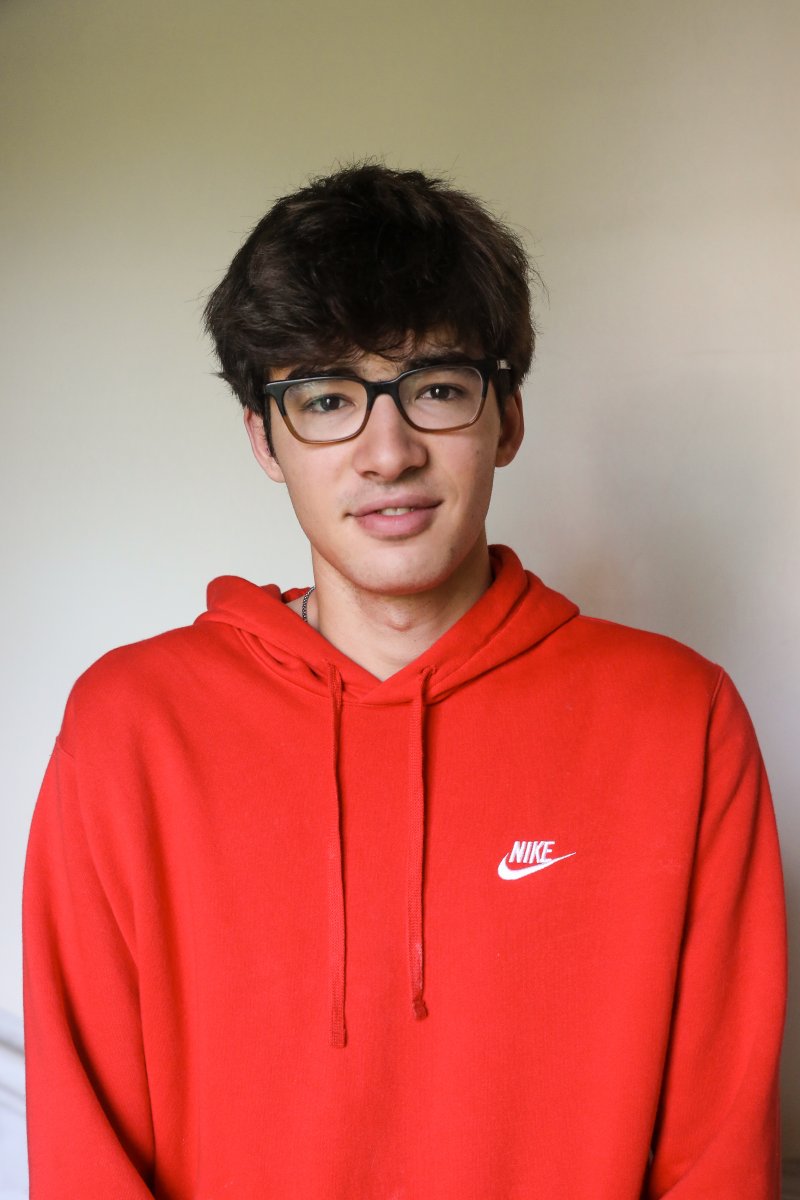
His primary focus was on trends among American batters in Japan, analyzing what made some more success-ful there. He looked at walk rates and noted that the higher the rate, the more successful the Americans were in Japan. Interestingly, he also determined that players who tend to strike out in American baseball, where success is measured in home runs, did well in Japanese baseball, where the game is less focused on power.
The internship reinforced Clavel’s plans to make a career of scouting or other off-the-field work in baseball.
And though he would have welcomed the opportunity to throw a few pitches, Clavel was happy to spend time focusing on a sport he loves in a country that means so much to him.
“I was really interested in working with a baseball team; I would’ve done anything,” he says, acknowledging that he did some homework on stats and Excel spread-sheets before heading to Japan. “Once I got there, they showed me a lot of it’s just using your eyes and looking for trends.” He also used his eyes and his expertise to scout high school and industrial league tournaments in Osaka, tracking pitchers with video and a radar gun. At least two of those pitchers are likely to be drafted this winter.
With a population of 1.5 million, Fukuoka, in southern Japan, is not a small city, but Clavel, who lived there on his own, was noticed enough to be interviewed on national television.
“I guess it was a bit of a novelty to have an American person there,” he says. “My boss told me they thought it was really interesting that there was a foreigner who was working in baseball.”
Minseo Kim '23
Non Sibi DreamCatcher
Insomnia keeps Minseo Kim ’23 up at night, but she is sleeping fine. “I would start in the afternoon and just keep coding and fixing bugs,” she says. “Night would pass by and before I knew it, my mom would knock on the door and bring me green tea.” That coding was integral to DreamCatcher, a product Kim is co-developing that uses photoplethysmogram (PPG) data to track sleep.
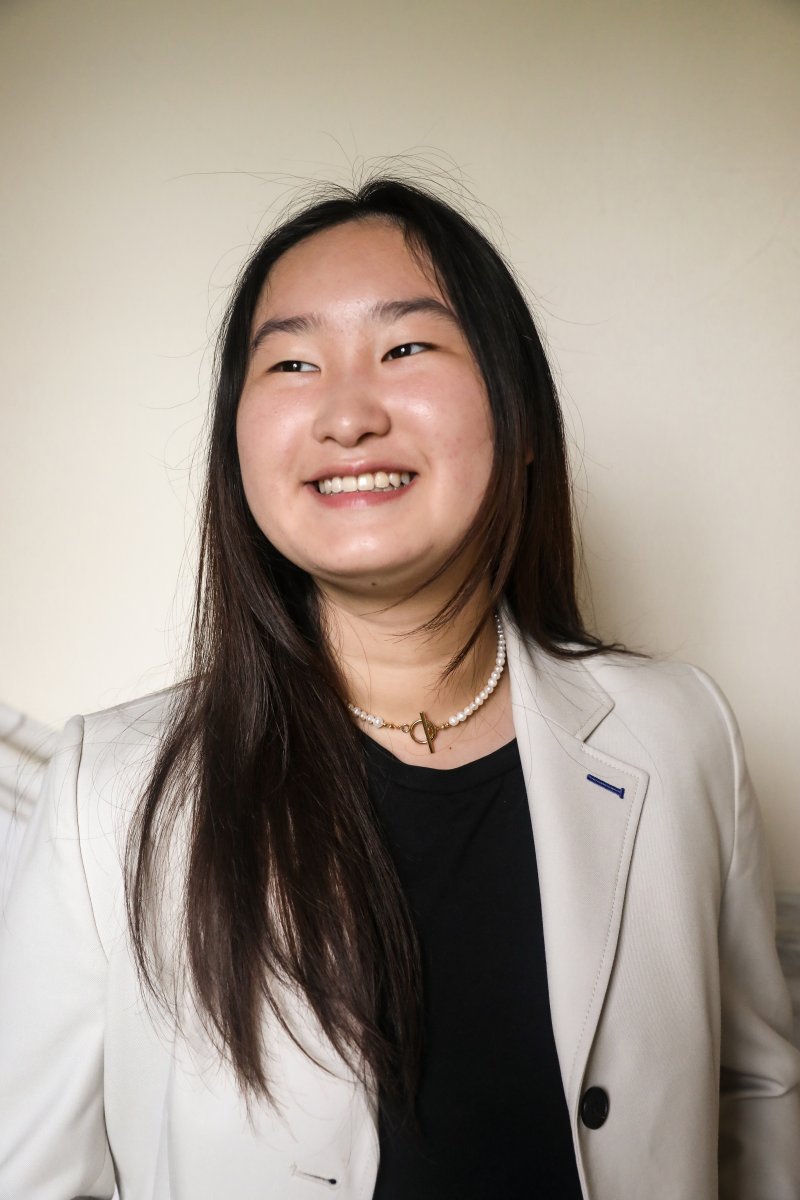 Early in the pandemic, while attending classes from her home in Seongnam, South Korea, Kim became aware that her fellow Exonians and millions globally were struggling to get a good night’s sleep. With tech and design thinking in her blood — she has lived in tech hubs Silicon Valley and Seattle — Kim and a teammate began exploring a new way for people and their doctors to track sleep data as part of the POSCO ICT AI Youth Challenge.
Early in the pandemic, while attending classes from her home in Seongnam, South Korea, Kim became aware that her fellow Exonians and millions globally were struggling to get a good night’s sleep. With tech and design thinking in her blood — she has lived in tech hubs Silicon Valley and Seattle — Kim and a teammate began exploring a new way for people and their doctors to track sleep data as part of the POSCO ICT AI Youth Challenge.
Sleep is routinely monitored with an electrocardiogram (ECG), which tracks heart rate, heart rate variability and other health data. But it requires the user to wear multiple sensors that can make it difficult to sleep. A PPG, however, requires only a single sensor — think Apple watches and oximeters — though the data it provides aren’t as detailed. Using artificial intelligence, Kim and her teammate were able to “train the model” to estimate an ECG wave accurately from a PPG wave and provide detailed data on how well and how long the user slept.
They encapsulated the circuitry in a forehead sensor Kim designed using Blender, a computer-aided design program, and produced with a 3D printer. Through Bluetooth and an Android app the teammates developed, the sensor could submit data to the user’s phone. The app also could provide pink noise, a blend of sounds that have been proved to aid with sleep. Research shows that back-ground sounds can be disruptive during deep sleep, so the sensor could deliver a signal to the app to turn off the sounds when the user enters rapid eye movement (REM) sleep, the deepest stage.
The resulting paper received a Samsung Humantech Paper Award competition bronze medal in February 2022. Kim and her collaborator have a patent pending on the hybrid AI architecture they developed, a generative adversarial network and a convolutional neural network.
DreamCatcher isn’t Kim’s first use of AI and technology to respond to a health concern. In middle school, alarmed by the increase in suicide rates among her peers due to overwhelming academic stress, she developed a “mind lightening pen.” A combination of programming and heartbeat sensors that responds to an increase in stress level, the pen buzzes to remind the user to take a break from studying.
This summer, in addition to refining the DreamCatcher, Kim volunteered as chief technology officer for the South Korean branch of United Nations Volunteers and was an intern at the Way Maker School in Seongnam, helping to build a computer science curriculum that includes AI, emotion classification and empathy. “That got me thinking a lot about what it really means to care for someone else,” she says. “What does it mean to be non sibi? And what does it mean to incorporate that into technology? It’s about fully understanding the person and the problem, and finding the solution together.”
Isabella Vesely '23
Galactic Imagineer
By fourth grade, Isabella Vesely ’23 was focused on science. The Wisconsinite started robotics teams and later “stumbled upon” weekly lectures at the local university’s planetarium, where she took notes eagerly, surrounded by college students. By the end of middle school, she was two years ahead of her class in math, and a teacher recommended that she apply to Exeter.
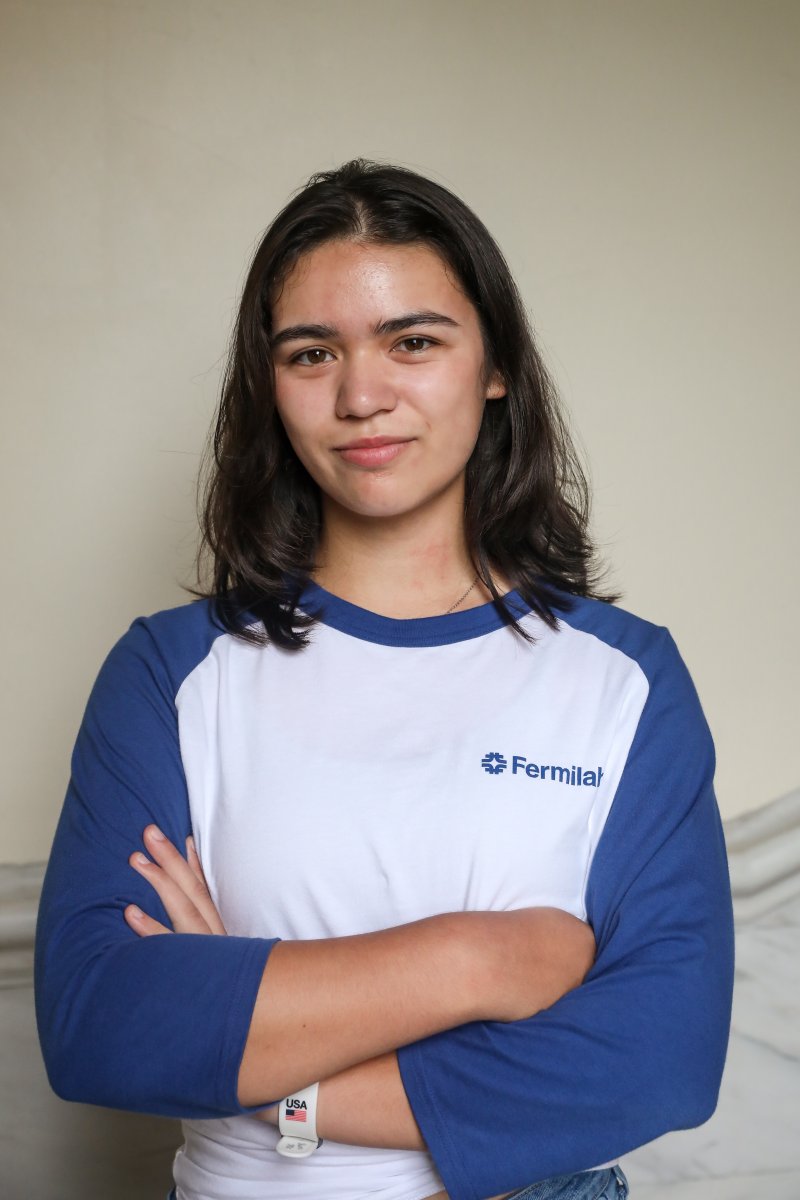 Delighted as a prep to be able to choose classes in any branch of science, Vesely quickly realized her favorite was physics, for its expansive focus on everything, including particles and galaxy clusters. She barreled through Exeter’s entire physics curriculum. “Physics really helped me have this analytical mind, always questioning.”
Delighted as a prep to be able to choose classes in any branch of science, Vesely quickly realized her favorite was physics, for its expansive focus on everything, including particles and galaxy clusters. She barreled through Exeter’s entire physics curriculum. “Physics really helped me have this analytical mind, always questioning.”
This summer, Vesely participated in the QuarkNet Summer Research Program, a paid virtual opportunity for high school students. It is supported by the Fermi National Accelerator Laboratory, or Fermilab, which is funded by the U.S. Department of Energy and is home to the world’s second-largest particle accelerator.
Vesely and a partner were assigned to imaging galaxy clusters across millimeter, optical and X-ray wavelength bands. Those were combined with the rest of their research group’s findings to create hyperfast, analytic model-based simulations of galaxy clusters to deter-mine their mass through an artificial intelligence neural network. That kind of information, Vesely says, along with research in dark matter and dark energy, will some-day play a role in developing as-yet-unrealized uses here on Earth.
“The base of physics is really just asking questions about what’s going on around us,” she says. “Once you find a discovery and know more about the world, you can have meaningful applications. The first step is experimenting and observing, using our eyes or, now in modern physics, computers, simulations, neural networks and AI.”
This fall, while continuing research for Fermilab, Vesely will tackle special types of problems in quantum mechanics and apply so-called deep neural networks and physics-informed neural networks as part of her senior project. She’ll review existing research to re-create results and hopes to help make the process more efficient.
Next spring, though, she’ll be a congressional intern. “We need better public policy that’s actually based on things that are pertinent in modern science,” Vesely says of her somewhat incongruent interests. “A lot of new public policy — in technology and energy, especially — has ties to physics and computer science. In the future, I hope to use what I explore in physics and engineering and computer science to make sure we have a very ethical way of living that’s more efficient.”
David Kim '23
Budding Diplomat
Iran might not be at the top of everyone’s travel bucket list, but for David Kim’23 it is. So, two years ago, limited by quarantine and other restrictions at home in Hong Kong during the pandemic, Kim did the next best thing to traveling: He visited the local consulate — considered “foreign soil”— with a friend. The Iranian consulate general enthusiastically welcomed his two unexpected visitors.
“That was great luck on our end in terms of meeting him first,” Kim says. “That gave us confidence going forward.” It also inspired the two to make a formal plan to visit as 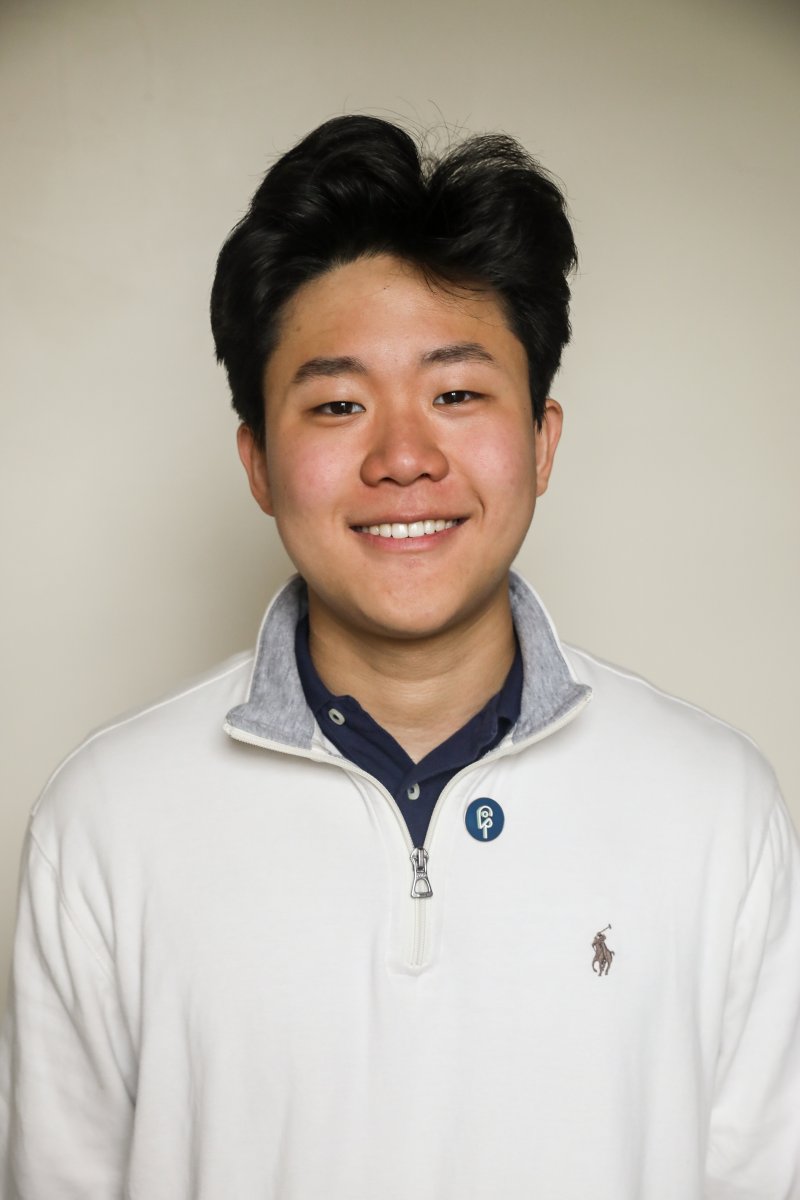 many of Hong Kong’s 64 consulates general and 56 honorary consulates as they could, then share information and highlights from the ensuing discussions with their peers. The result: Consulate Review, a global organization whose mission “to bridge current and aspiring world leaders through open, meaningful conversations” is carried out today through chapters run by students in San Francisco; Cairo; Bogotá, Colombia; and Dubai, among other cities.
many of Hong Kong’s 64 consulates general and 56 honorary consulates as they could, then share information and highlights from the ensuing discussions with their peers. The result: Consulate Review, a global organization whose mission “to bridge current and aspiring world leaders through open, meaningful conversations” is carried out today through chapters run by students in San Francisco; Cairo; Bogotá, Colombia; and Dubai, among other cities.
Together with Exeter friends Drew Smith ’23 and Jayson Tung ’23, Kim brought the project to New York and the United Nations last fall. They have met with ambassadors from every continent except Antarctica, asking challenging questions about education, gender equity, human rights, economics and climate change. They then share information with interested students through their website and Instagram feed. Kim says some conversations have been particularly notable, such as one with a member of the Israeli delegation and another with the Russian ambassador shortly before the war in Ukraine. This summer, Kim juggled a social media internship at the Permanent Mission of the Republic of The Gambia to the United Nations with his consulate visits before returning to Hong Kong to work on rebranding Consulate Review. That meant designing a new logo and articulating objectives, but also broadening the organization’s social impact.
To that end, Consulate Review is assisting the Iranian consulate with an event introducing Hong Kong residents to Iranian culture and geography, volunteering at the Panamanian consulate’s booth at the Belt and Road Summit, and initiating a pilot program to bring diplomats to schools in New York City’s five boroughs that might not otherwise have the means to do so. The team also hopes to begin filming informative documentaries.
“In so many different ways, this project entered my life and helped improve it,” Kim says, noting that the other country he would most like to visit is North Korea.
“Obviously, we’re ‘on different sides,’” Kim, a native of South Korea, says of his meeting with the North Korean consulate general. “But once you speak with someone, if you’re kind and respectful, they usually reciprocate. That has helped me tremendously — not just in that regard, but also at school, communicating with different people. You should be open to conversation, open to learning somebody else’s opinion, and willing to adjust if you learn something that’s different from what you think but aligns with the general moral truth.”
Editor's note: This article first appeared in the Fall 2022 issue of The Exeter Bulletin.
